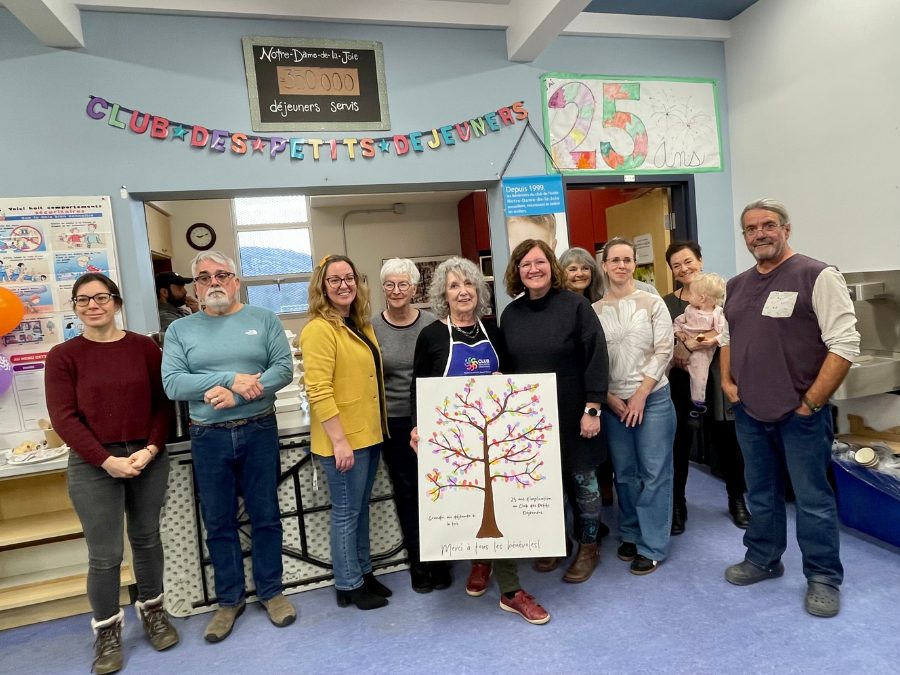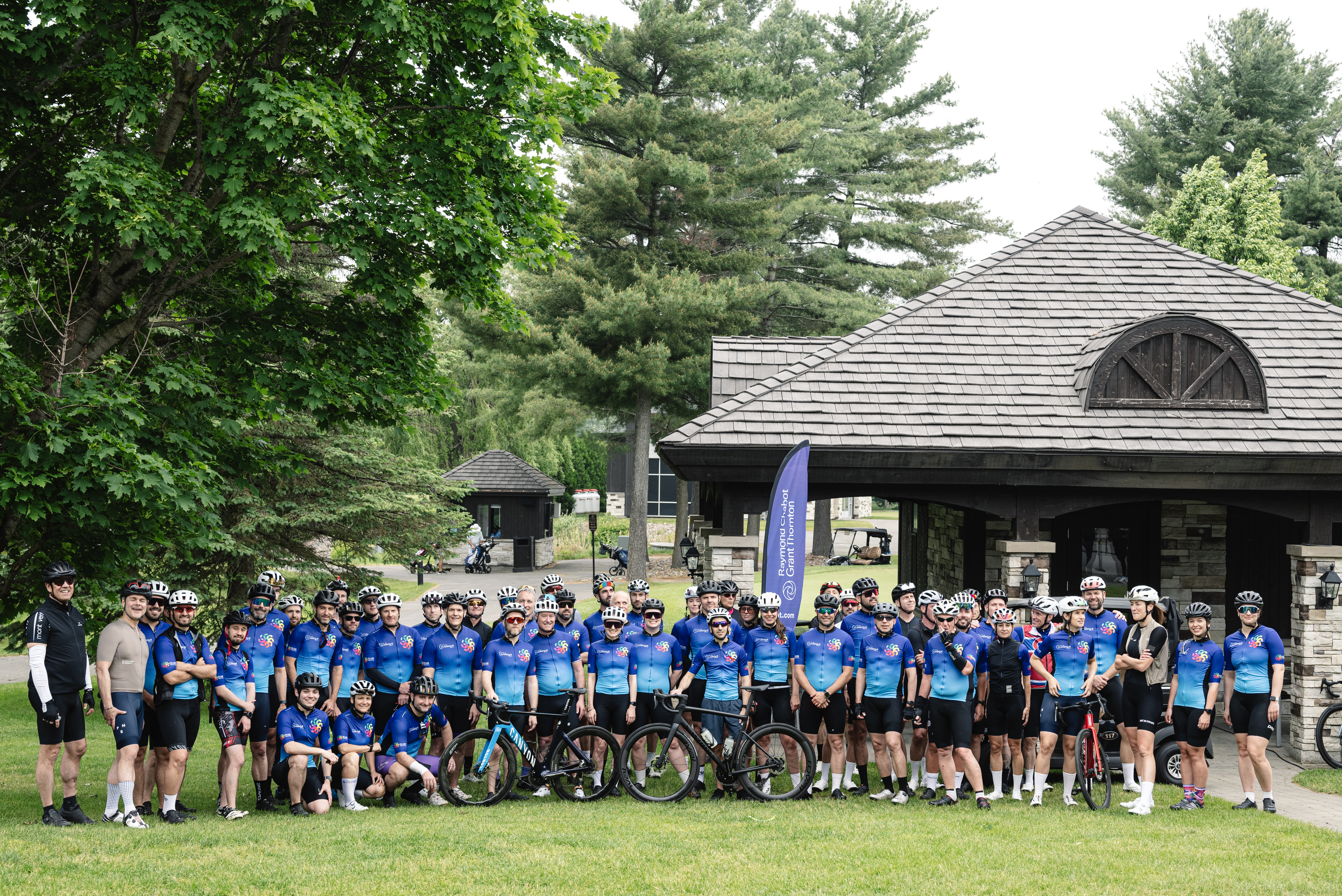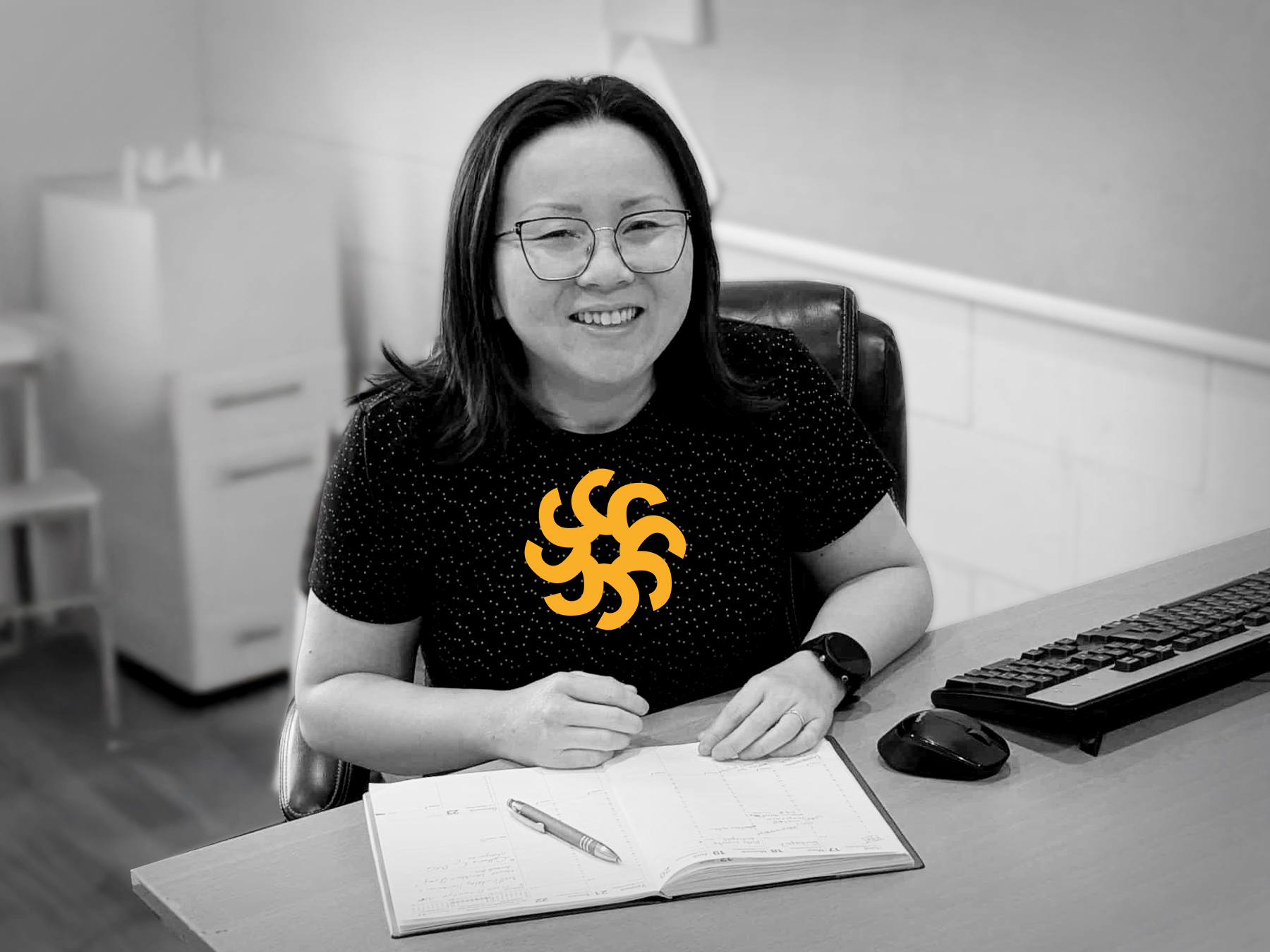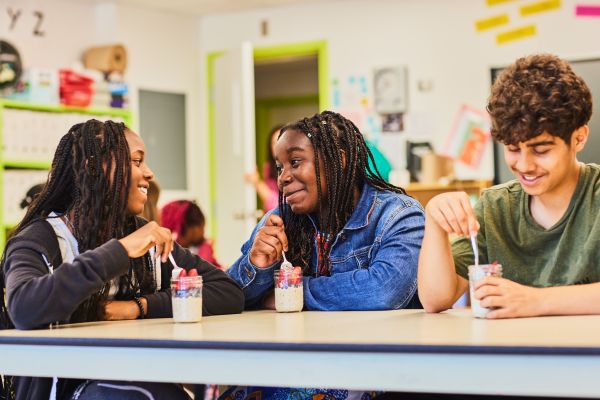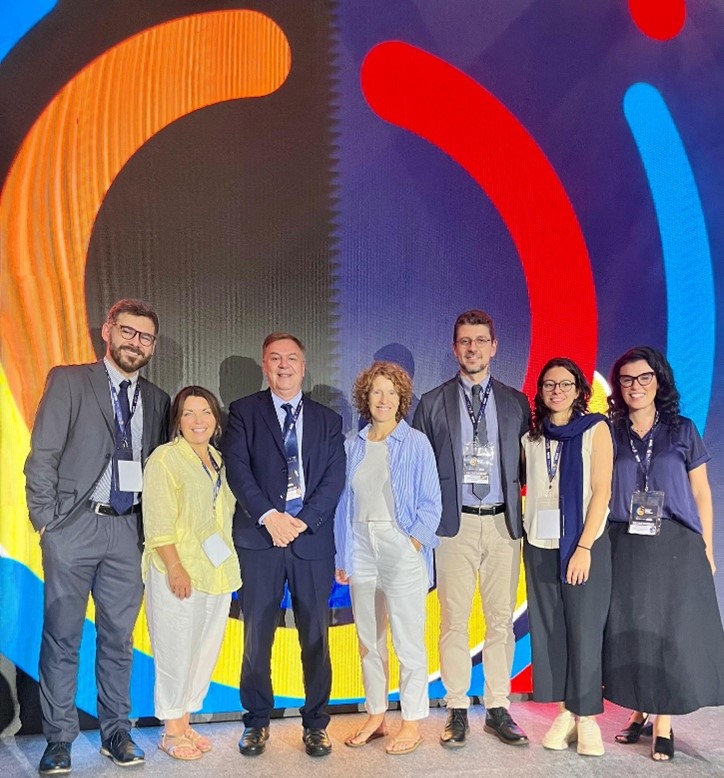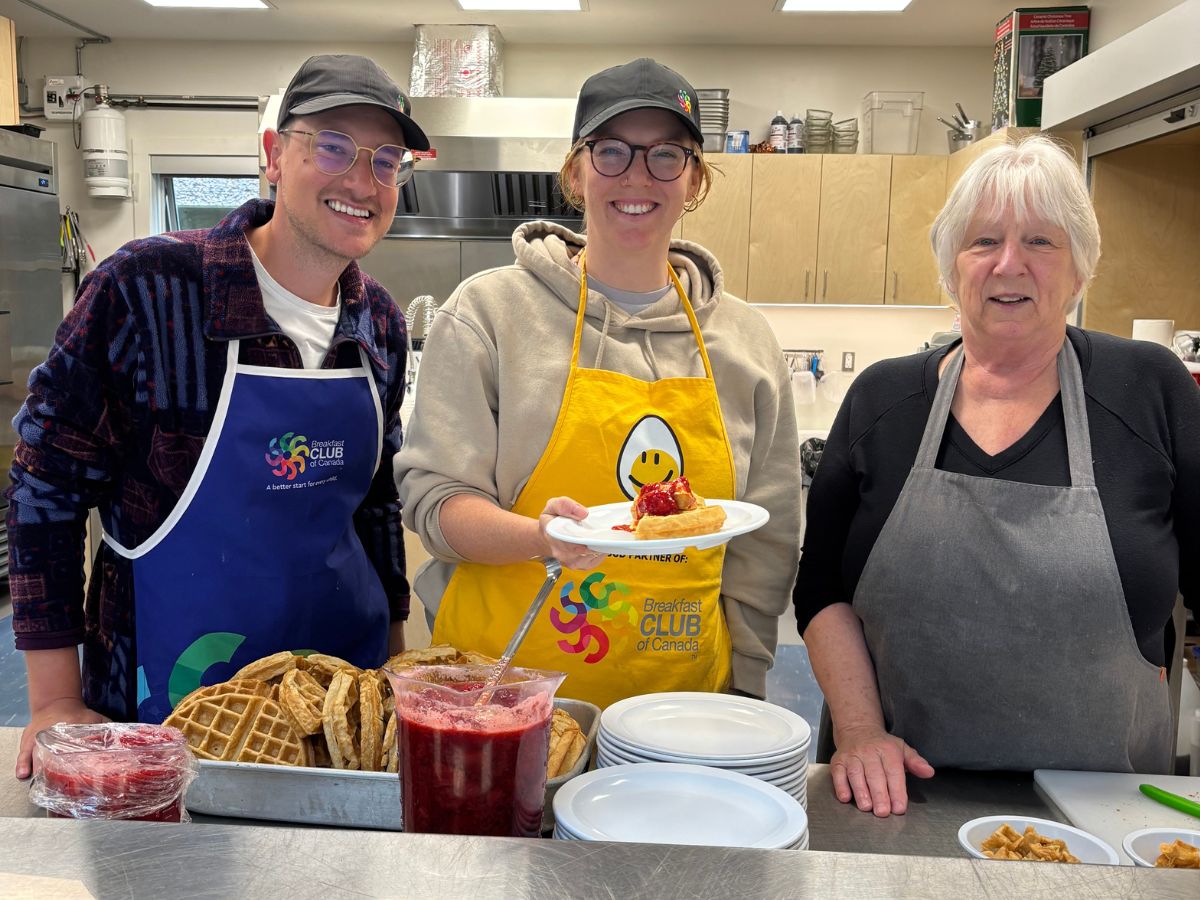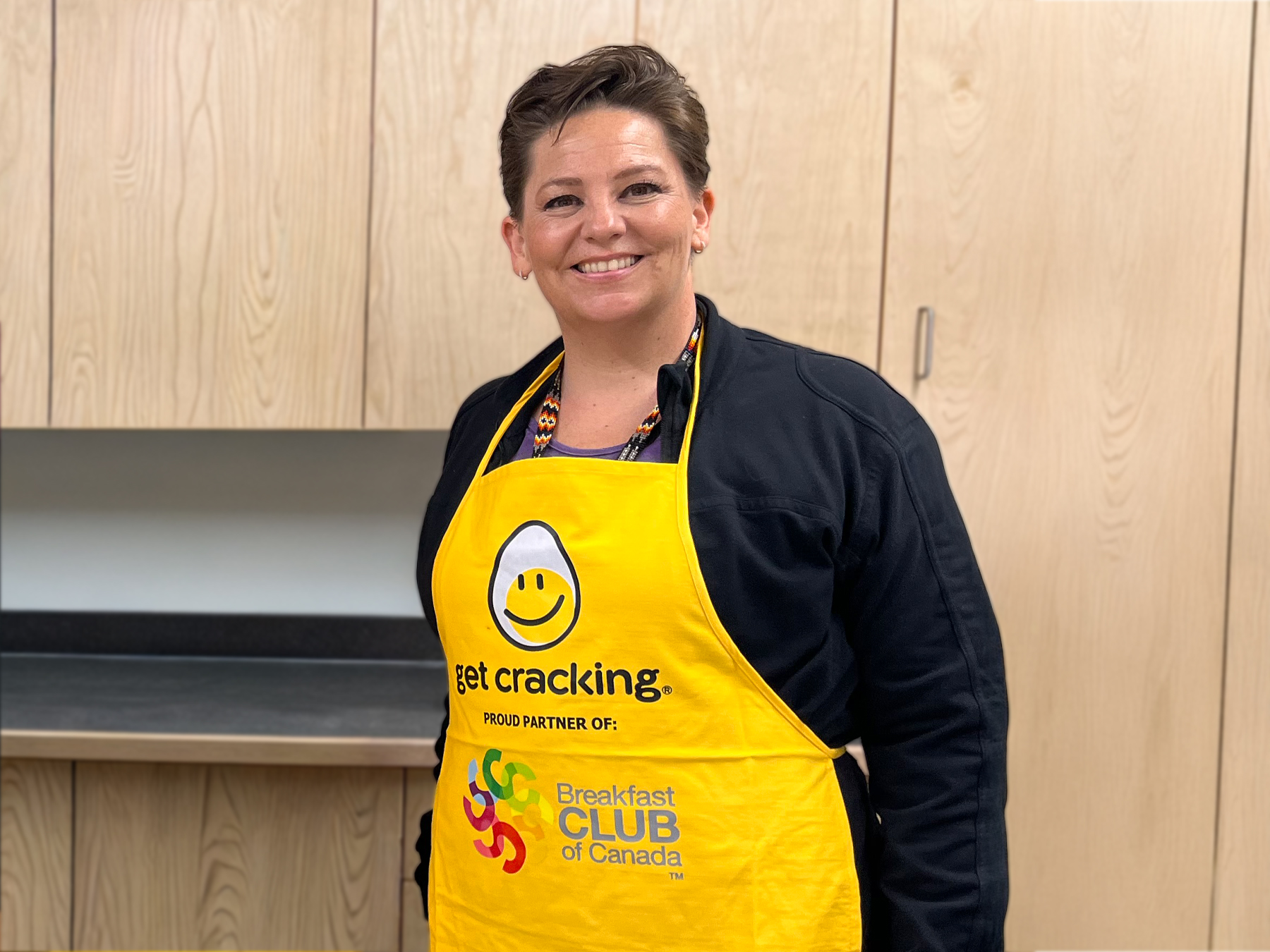
Voices in action for a human-centered Club
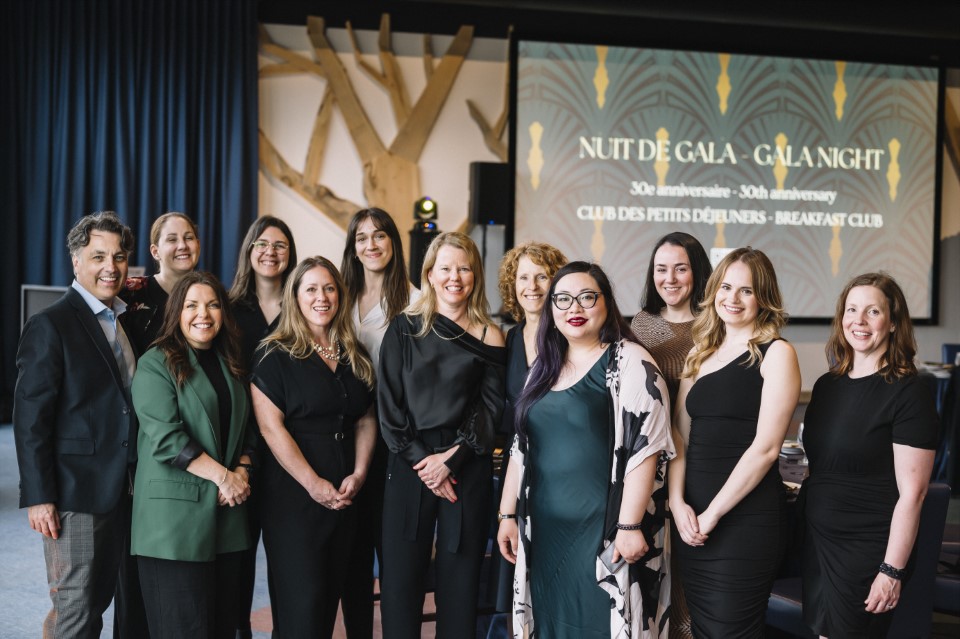
What is the Culture Committee?
The Culture Committee’s aim is to foster a respectful, inclusive and equitable work environment, where everyone can feel welcomed and valued. Through discussion, concrete initiatives and awareness-raising efforts, the committee helps to change internal practices and strengthen the sense of belonging.
An initiative rooted in the Club’s culture
At Breakfast Club of Canada, the notions of diversity, inclusion, caring, belonging and equity are deeply rooted in our culture and guide our day-to-day actions. They are actively supported by a group of engaged individuals who make up the Culture Committee. Created to support management and Human Resources, this committee’s mission is to anchor these values in the Club’s organizational practices. Through its observation, mobilization and support role, it contributes to the evolution of our internal culture towards an ever more human, open and equitable environment. But beyond its mission, the Culture Committee is above all a human initiative. Made up of 12 employees from different departments and regions of the country, it represents a mosaic of backgrounds, skills and perspectives. Each member brings their own unique voice and experience, helping to make the Club a more inclusive, respectful and supportive workplace.
This committee is led by Joëlle, Senior Human Resources Advisor, who guides the committee’s work. For her, the importance of the Culture Committee goes far beyond its professional functions. She sees it as a space for sincere reflection, capable of profoundly transforming the Club’s ways of being and doing.
A committee that reflects the Club’s people
What sets the Culture Committee apart is its human diversity. The committee includes field staff, HR specialists, communications and political mobilization experts.
This plurality is an asset. It allows us to multiply points of view, confront realities and open up to others. Marilou, Communications Advisor, notes that these differences of opinion make the discussions “relevant and rewarding.” Karine, Vice President HR and Strategy, meanwhile, states that the committee offers “a lively, courageous and meaningful space for dialogue.” It’s this ability to welcome voices, to challenge itself, that makes the committee effective.
Paul expresses how rewarding it is to be able to learn from colleagues in different departments: “Every meeting is an opportunity for me to learn important things from my colleagues on the committee.” He is also pleased that the committee truly reflects the diversity it seeks to promote.
A commitment nourished by personal experience
The committee members’ engagement doesn’t spring from nowhere— it often arises from their own journeys. According to Dennise, Senior Programs Advisor, the committee’s “heartfelt conversations” and “concrete actions” echo her desire to contribute to a more human organizational culture. Geneviève, HR Advisor, engaged herself with humility, to better understand the realities of her colleagues and become “a better professional.”
This desire to learn, grow and do better is a recurring theme for many members. Elise, Senior HR Advisor, sees the committee as “an extension of her role,” but also a personal engagement. For Carmen, it was her background in accessibility that made her aware of “systemic gaps” and prompted her to get involved.
Jennifer also shares this desire: “I wanted to be able to use my personal and professional experiences to help others.” She underscores how the committee enables her to discover other perspectives and other stories, and to connect with colleagues she might not otherwise have crossed paths with.
Concrete actions and a visible impact
The Culture Committee is not just a forum for discussion, it’s an agent of change. Several members can testify to the concrete transformations they have seen or initiated. Karine recalls a meeting where a simple testimonial led to quick adjustments in internal communications. Dennise mentions “courageous conversations” as highlights, which strengthen the sense of community at the Club.
These initiatives are not anecdotal. They change mindsets, open up dialogues and disrupt habits. Jennifer notes that the committee’s Teams channel, powered by cultural and educational content, is a daily source of inspiration. Marilou, for her part, sees each text revision as an opportunity to ensure that the tone is right and that the Club’s values are respected.
A safe space
Talking about racism, exclusion and privilege is never easy, yet the committee members choose to confront it. Joëlle, who coordinates the committee’s work, states that “it’s necessary to have open and intentional conversations about these sensitive topics, as they help to recognize the different realities experienced by members of an organization. We get to understand everyone’s reality, be it geographical, generational, cultural or other, which helps us to remain open to differences and create a flexible, open-minded workplace. By creating a space where everyone feels listened to, respected and valued, we foster a climate of trust and collaboration.” For Marie-Claude, these discussions are “full of respect and growth.” It enables her to broaden her understanding of the world by discovering her colleagues’ realities, which are sometimes very different. “It pushes me to question myself, to think differently, and to grow as a person.”
It’s in these sometimes uncomfortable moments that trust is built— where reflexes are challenged, and blind spots are recognized. As Geneviève puts it, “this climate of caring and openness allows us to step out of our comfort zone,” and thereby grow together.
A culture of authenticity
The work of the Culture Committee helps to anchor a culture where everyone can be themselves. Éliane, Programs Technician, sums it up well: “A place where you feel free to share your ideas without fear of being judged. A caring workplace, where differences are not tolerated but valued.”
This culture is built on everyday actions, on the words we choose, and on the spaces we create. As Karine points out, “you need a shared vision, a continued commitment, and aligned actions.” Marilou adds that “the importance of social interaction” in building an inclusive environment should not be underestimated.
Towards an even more human Club
Over the years, the Culture Committee has sown the seeds of change. There’s still a long way to go, as Judith, Club co-founder and Director of Government Relations, says, but “we can already be proud of the progress we’ve made.” She also invites reflection on the place that children could occupy in the discussions of the Culture Committee: “integrating their voices, ideas and needs into our reflections would enable us to stay consistent with our primary mission and enrich our practices with unique and authentic perspectives.”
The Club’s future lies in its ability to listen, to challenge itself and to grow together. As Karine so aptly sums up, “Every Club action will be rooted in authenticity, not appearance.”


